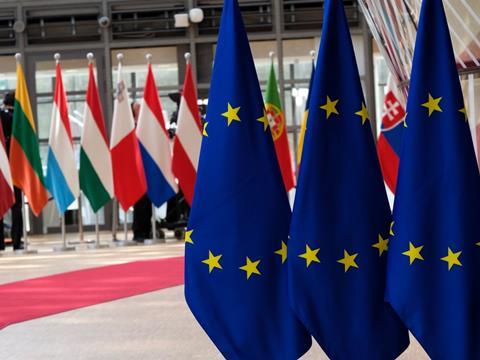
A joint industry statement has expressed concern about the Packaging and Packaging Waste Regulation’s references to ‘state-run producer responsibility organizations’, which are feared to open legal loopholes and threaten the EU’s recycling targets and decarbonization goals.
Implementing these provisions into EU legislation could undermine progress made in the revisions of the Packaging and Packaging Waste Directive and the Water Framework Directive in 2018, the signatories argue. In their view, the laws could be exploited by Member States to avoid meeting their legal obligations – which would lower recycling rates, threaten producers’ ability to meet minimum requirements for their packaging, jeopardize the packaging industry’s contribution to the EU-wide goal of achieving net zero by 2050, and threaten the EU’s global EPR leadership.
The European Council’s General Approach now references ‘state-run producer responsibility organizations’ in recital 97a, Article 39.7b, and Article 42.6. The signatories state their unease that such organizations will have “no represented producer mandate”, according to recital 97a, and fear that these circumstances would reduce a producer responsibility organization (PRO)’s role to collecting taxes for a State’s Treasury and helping to fulfil the Member State’s reporting obligations.
As such, it is thought that the provisions go against the very reason PROs exist, which is to fulfil the responsibilities of producers on their behalf. The Organisation for Economic Co-operation and Development’s (OECD) adds that ‘state-owned PROs’ are a form of tax and, since they contradict the minimum requirements of Extended Producer Responsibility (EPR) schemes as laid out in Art 8a of the WFD1, cannot be considered as EPR.
In order to remain on track with the EU Green Deal and achieve net zero by 2050, the industry players urge EU legislators to remove any references to state-owned PROs in the Regulation.
The joint letter’s signatories include, but are not limited to, the Alliance for Beverages Cartons & the Environment (ACE); The Association of European Producers of Steel for Packaging (APEAL); CEFLEX - A Circular Economy for Flexible Packaging; European Bioplastics (EUBP); EUROPEN – The European Organisation for Packaging and the Environment; FoodDrinkEurope (FDE); the European Container Glass Federation (FEVE); Natural Mineral Waters Europe (NMWE); the Polyolefin Circular Economy Platform (PCEP); and PET Europe.
In December 2023, the European Council revealed its General Approach on a proposal for the Packaging and Packaging Waste Regulation; it sought to lower the amount of waste generated in the EU, harmonize the internal packaging market, and make progress towards a circular economy.
UNESDA, FEVE, EUBP, the Permanent Materials Alliance, and Zero Waste Europe soon responded. Their criticisms included a lack of provisions for specific industries and concern about the addition and removal of certain measures from the draft text.
A previous statement from over 100 players in the European packaging industry encouraged the EU Member States to preserve the Single Market and prevent disruptions to the supply chain in the rollout of the PPWR.
If you liked this article, you might also enjoy:
The L’Oréal approach to packaging sustainability
What steps is Apple taking to make its packaging more sustainable?
How did Brazil achieve its 100% aluminium can recycling rate – and can it be replicated in the EU?
Experts have their say on the EU’s Packaging and Packaging Waste Directive revisions














No comments yet